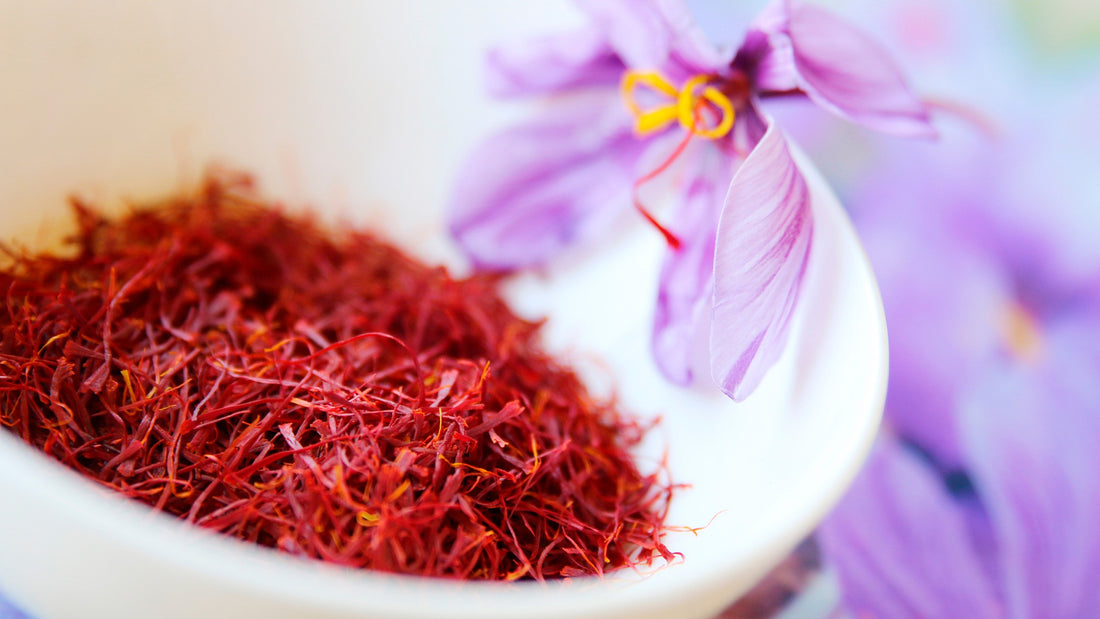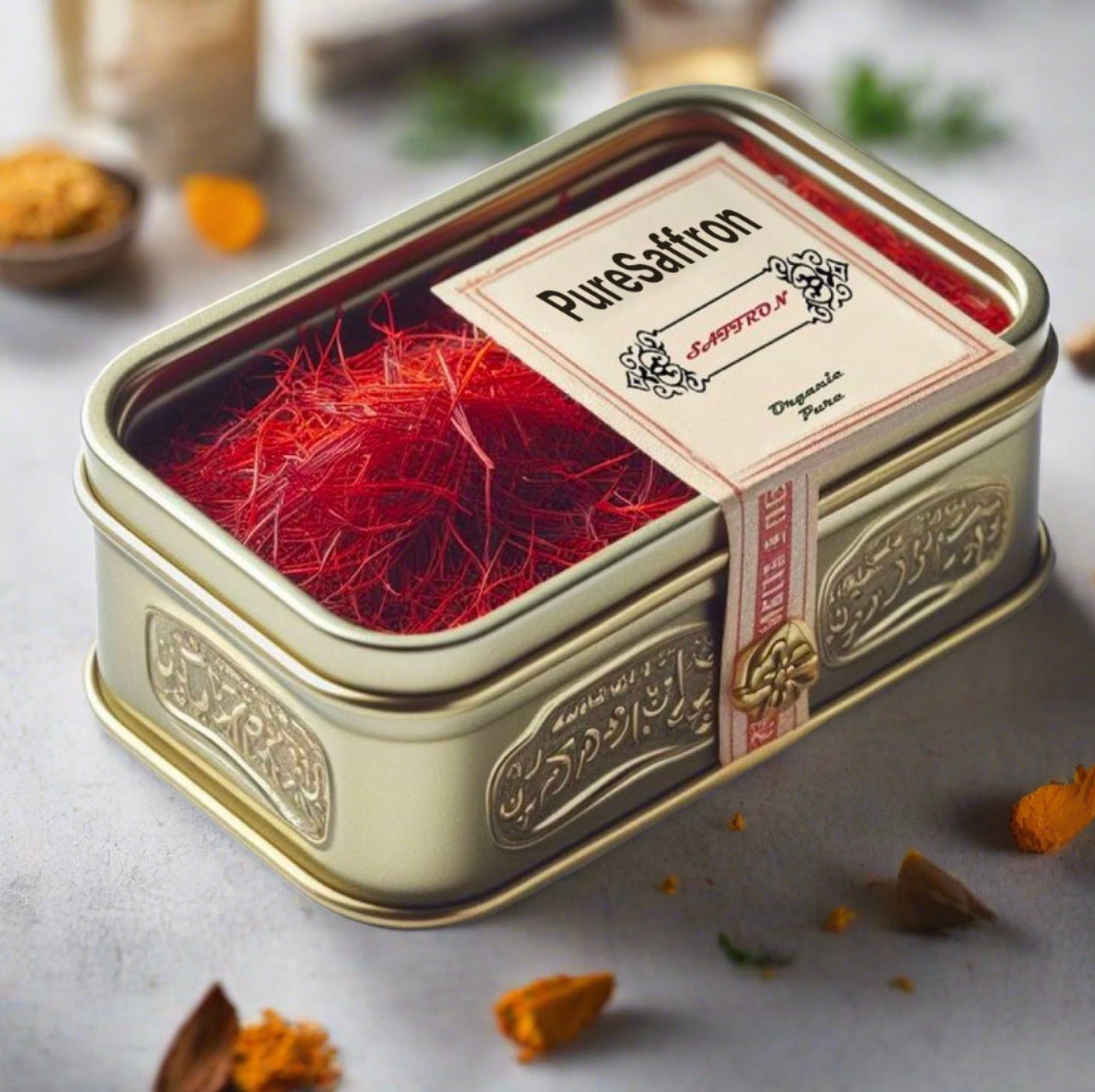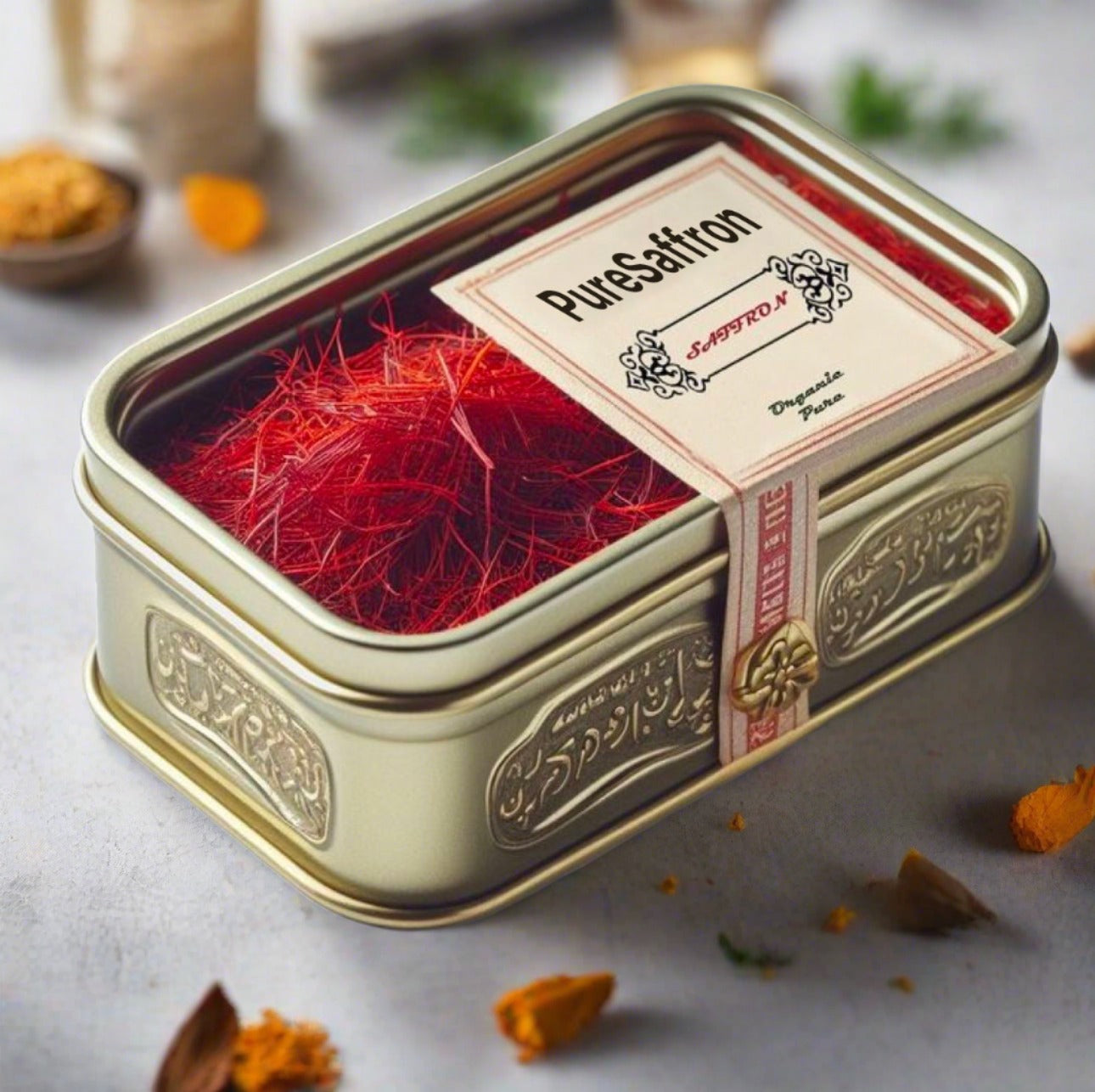
Unveiling the Antioxidant Power of Saffron: A Comprehensive Guide
Ara OhanianShare
In the vibrant world of spices, saffron not only stands out for its distinct flavor and color but also its impressive health benefits. Renowned as one of the most precious spices in the world, saffron offers a plethora of medicinal advantages, among which its antioxidant properties are particularly noteworthy. In this detailed exploration, we delve into the science behind saffron’s antioxidant benefits, how it contributes to health and wellness, and why it should be a staple in your dietary regimen.
Understanding Antioxidants and Their Importance
Antioxidants are substances that can prevent or slow damage to cells caused by free radicals, unstable molecules that the body produces as a response to environmental and other pressures. Antioxidants such as those found in saffron can neutralize free radicals, thus preventing them from causing harmful cell damage.
Saffron’s Rich Antioxidant Profile
Saffron, scientifically known as Crocus sativus, is rich in a variety of chemical compounds that have potent antioxidant properties. These include crocin, crocetin, safranal, and kaempferol. Crocin and crocetin are carotenoid pigments and are responsible for saffron’s vibrant red color. They not only enhance the aesthetic appeal of dishes but also contribute significantly to health benefits, including reducing oxidative stress and protecting against cellular damage.
The Health Benefits of Saffron’s Antioxidants
-
Protection Against Chronic Diseases: The antioxidants in saffron can help protect against chronic diseases by reducing inflammation and oxidative stress, two key contributors to chronic conditions like heart disease, diabetes, and cancer. By incorporating saffron into your diet, you could potentially lower your risk of these health issues.
-
Enhanced Brain Health: Several studies suggest that the antioxidant properties of saffron could contribute to improved cognitive function. The antioxidants in saffron have been linked to reduced plaque accumulation in the brain, a hallmark of several neurodegenerative diseases, including Alzheimer’s.
-
Mood and Mental Health: Saffron is also known for its potential in treating depressive symptoms. Its antioxidant components may help modulate neurotransmitters within the brain, thereby improving mood and emotional health.
-
Skin Health: The antioxidant properties of saffron can also protect the skin from harmful UV rays and pollution by neutralizing free radicals that can lead to premature aging and skin damage.
Incorporating Saffron into Your Diet
Adding saffron to your diet is not only an opportunity to enhance the flavor of your meals but also a way to imbibe its health benefits. It can be included in various dishes, from traditional saffron-infused rice and soups to contemporary desserts and teas. A small amount of saffron is sufficient to add aroma, color, and health benefits to your dishes.
Sustainable Sourcing of Saffron
As the demand for saffron grows due to its health benefits, sustainable sourcing becomes crucial. It is important to purchase saffron from reputable sources that ensure high quality and fair labor practices. This not only guarantees that you receive the purest form of saffron but also supports ethical farming practices.
Conclusion
Saffron is much more than a luxury spice. Its robust antioxidant properties offer various health benefits, making it a valuable addition to any diet. By understanding how to incorporate saffron sustainably and effectively into your meals, you can enjoy both its culinary qualities and its health-promoting effects.
In our quest for wellness, embracing natural solutions like saffron could be the key to a healthier future. So, the next time you’re pondering how to spice up your diet, consider the golden allure of saffron—not just for its taste, but for its health-enhancing properties as well.
FAQs About Saffron and Its Antioxidant Benefits
1. What is saffron and why is it valuable? Saffron is a spice derived from the Crocus sativus flower, commonly known as the saffron crocus. It is highly valued for its unique flavor, color, and numerous health benefits, particularly its antioxidant properties which can aid in preventing cell damage and reducing the risk of chronic diseases.
2. How do antioxidants in saffron benefit health? Antioxidants in saffron, such as crocin, crocetin, and safranal, help neutralize harmful free radicals in the body. This action helps prevent cellular damage and inflammation, reducing the risk of chronic diseases like heart disease, diabetes, and certain cancers. Antioxidants also promote skin health and brain function.
3. Can saffron improve mental health? Yes, saffron has been shown to have potential benefits for mental health. Its antioxidant components can affect neurotransmitter function in the brain, helping to improve mood and treat symptoms of depression.
4. What are some ways to incorporate saffron into my diet? Saffron can be added to a variety of dishes to enhance flavor and gain health benefits. It is commonly used in saffron-infused rice, soups, teas, and desserts. A small quantity is sufficient to impart its distinctive taste and color, as well as its health benefits.
5. How does saffron aid in skin health? The antioxidants in saffron help protect the skin from environmental stressors like UV radiation and pollution. This protective effect can prevent premature aging, reduce skin inflammation, and maintain overall skin health.
6. What should I consider when buying saffron? When purchasing saffron, it's important to choose high-quality, sustainably sourced products from reputable suppliers. This ensures you receive pure saffron without contaminants and supports ethical practices in saffron farming.
7. Are there any risks associated with consuming saffron? Saffron is generally safe for most people when consumed in culinary amounts. However, excessive consumption can lead to side effects such as nausea, dizziness, and allergic reactions. It is recommended to use saffron in moderation and consult with a healthcare provider if you have any underlying health conditions or are pregnant.
8. How much saffron should I use in cooking? A small pinch of saffron strands (about 0.1 grams) is typically enough to flavor and color an entire dish serving 4-6 people. Saffron is a potent spice, and a little goes a long way.

